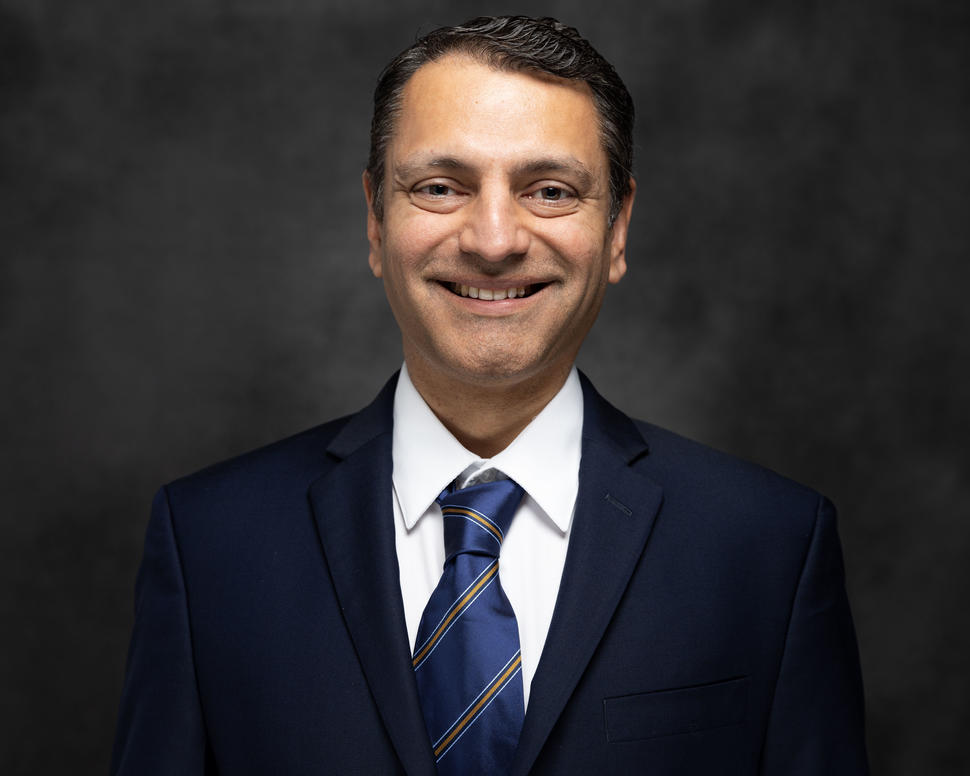Interview Conducted by Akemi T. Wijayabahu, Ph.D., M.S., postdoctoral fellow of the Clinical Epidemiology Unit, at the Clinical Genetics Branch
Years at DCEG: 2009-2013
DCEG Title: Research Fellow
Current Title: Associate Professor
Current Organization: Health Informatics Institute, Department of Pediatrics, Morsani College of Medicine, University of South Florida (USF), Tampa, Florida
1. Who was your mentor at DCEG? What did you work on?
My primary mentor was Laufey Ámundadóttir, Ph.D. During my fellowship, I mostly investigated the genetic risk factors of pancreatic cancer using data from the PanScan, which is a genome-wide association study (GWAS), and published a paper showing that targeted resequencing leads to the discovery of novel variants. I also worked on the Y chromosome haplotype analyses related to prostate cancer.
2. What is your current position?
At present, I am working as an associate professor at the University of South Florida. While it is a 100% research-based position with funding from NIH/NIDDK, I take on a couple of lectures per year.
At our institute, we look at genetic and environmental risk factors and gene-environment interactions associated with the development of islet autoimmunity and type I diabetes (T1D). I am a co-investigator of an ongoing multi-center prospective study, “The Environmental Determinants of Diabetes in the Young Study (TEDDY)” with approximately 8,700 children enrolled at present. To do comprehensive -omics profiling, we designed nested case-control studies, including approximately 1,000 children enrolled in TEDDY.
3. How do you apply the skills you developed at DCEG in your current job?
Our studies mainly focus on large-scale -omics analyses, for which I do a lot of programming. I enhanced my programming skills during the DCEG fellowship, including use of the high-performance computing systems, such as BIOWULF and Helix. The skillset I developed during the training program is useful when navigating other high-performance computing systems such as Research Computing at the USF or Amazon Web Services (AWS) for analysis of large -omics data. Aside from programming skills, I learned the process of designing studies and statistical analysis, including power and sample size considerations through various seminars hosted within DCEG division and branch meetings as well as through DCEG-facilitated networking opportunities. I think these skills are very useful to apply in different types of study planning.
4. Do you have any memories from your fellowship that you would like to share? What did you do in your free time while you were at NCI?
In our lab, we had happy hour quite often, and that brings back good memories. I think we used to have happy hour at least bi-weekly. We sometimes went to Rockville Town Square and the Gaithersburg area. I also love the Washington DC area because of its historic value. I love history! I used to go to the Lincoln Memorial and lots of different museums. Many of these attractions are free for everyone. I enjoyed hanging out with other fellows, with whom I still keep in contact and who have become good friends over the years. I have formed good research collaborations with some as well.
5. What was your favorite project you worked on during your fellowship?
I liked most of the things I worked on while I was at DCEG, but I think the most interesting project to me was the chromosome Y haplotype analyses, mainly because I hadn't worked with them before, and I like to learn about how ancestry plays into disease risk. Learning about chromosome Y haplogroup, you can see the lineage of human migrations and their relevance to different parts of the world. It was quite fascinating to combine the historical perspective with the genomics data.
6. Do you have any advice for current or future DCEG fellows?
I would say a few things to keep in mind. The first thing is that while you're doing your own research, always keep in mind that NIH offers a wide variety of resources from many different branches/divisions. They offer an incredible number of seminars, not just from the NCI, but from all over NIH. Make use of these opportunities to learn more about how epidemiology, biostatistics, and bioinformatics can be applied in the study of a lot of different diseases, and across different fields of research. Think of attending seminars as a networking opportunity, where you can meet people from different institutes, different universities, and researchers from other parts of the world. I would highly encourage fellows to go to the town hall meetings as well.
In whatever way you want to define your fellowship of 2-5 years, I recommend that fellows plan it out. Determine what you want to accomplish every 6 months. This way you can improve your CV, and plan or schedule trainings, depending on your career goals. Mentorship is also important—at DCEG, you can get a lot of help from your mentors or other PIs in developing the skillsets you hope to build.
I think one of the best parts of DCEG and NCI is the access to a huge amount of data, including high-quality genomic data. For fellows exploring -omics research, learning good skills to analyze large scale omics data, having a few publications using these data, and learning about new technologies would be very helpful for the future. For me, it was helpful to analyze different types of data during the fellowship, as well as learn about the entire process starting from raw data, quality checks, normalizing, and summarizing data, etc. These skills can be applied to any type of data, anywhere.
